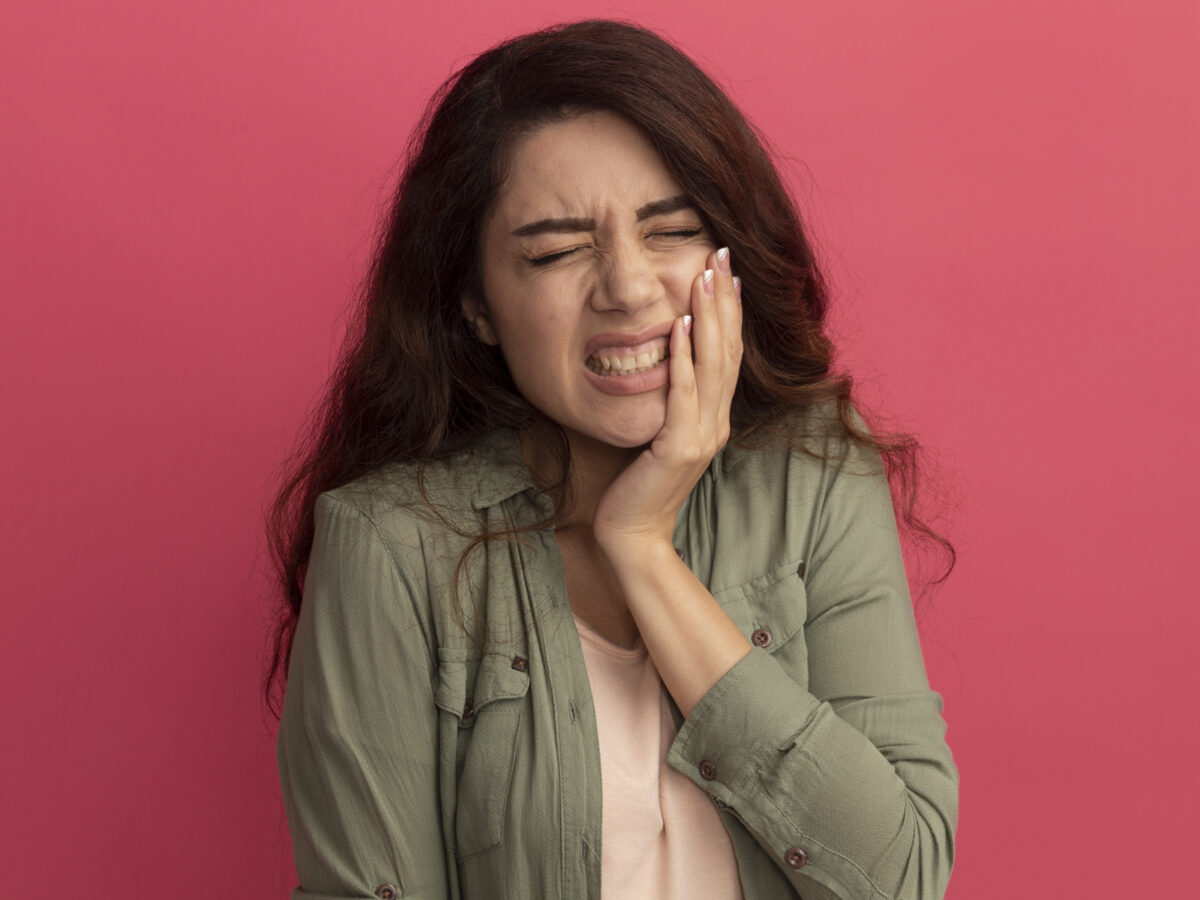Blog
Dental hygiene tips for healthy teeth & gums

Why Does My Ear and Jaw Hurt On The Same Side?
Have you ever had ear pain on the same side as a toothache in your lower jaw? It can be difficult to distinguish between ear and jaw discomfort on the same side when both occur on the same side. The causes and treatments for ear and jaw discomfort are discussed in this article. If you’re suffering from these issues, it would be wise to take some time out to give this blog a read.
Ear, jaw, or oral issues may be the root of the discomfort. Jaw and ear pain on one or both sides is also possible due to transferred pain. When an injury or trauma in one area of the body causes pain to be felt in another, this is known as “referred pain.”
Causes of ear and jaw pain
- Issues with teeth
Plaque buildup on teeth and gums due to improper dental care can lead to cavities, gum disease, and even an abscess if left untreated. You may get jaw and ear pain if you ignore these oral issues.
- Caused by oral bacteria
As was previously noted, a tooth abscess is a possible cause of ear or jaw pain. Tooth sensitivity or inflammation of the gums are other possible side effects. When tooth pain subsides, only to reappear in the jaw or ear, it’s a sign that the infection has spread. Learn about at-home remedies for that painful tooth abscess.
- Cavities
Tooth decay or dental cavities can cause ear, jaw, and mouth pain. The pain from aching back molars might radiate to the affected side’s ear. This is because the teeth and ears have the same nervous system.
The pain can be alleviated by getting the tooth filled, having a root canal performed, or having the tooth extracted.
- Impacted wisdom teeth
Sharp discomfort in the jaw and ear on the same side might also be caused by an impacted wisdom tooth wedged beneath the gum tissue. Without eruption, the wisdom tooth exerts a significant force on the surrounding teeth and gums. A dentist should extract the wisdom tooth if it doesn’t fall out independently.
The discomfort will go away if you take the strain off your jaw and ear on the tooth side. However, there are situations when the erupting tooth presses against the surrounding tissues. The discomfort won’t go away till the tooth is out.
How to reduce the pain?
Pain relievers can help with this intermittent discomfort. Pain in the ear or jaw can be treated at home. In the absence of an infection or serious injury, the following home treatments may help alleviate jaw or ear pain:
- Avoid damaging your teeth by using a night guard at night.
- Both heat and cold have healing and pain-relieving properties.
- Relax sore, stiff muscles with a light, soothing touch.
- Pain relief from NSAIDs is available.
- You could try jaw exercises. Keep your lower jaw protruding for a full minute. Then, move your teeth forward and backward and from left to right in a circular motion.
- Care for the sick
- Antibiotics are usually necessary if you have an infection. Additional treatments are required for serious infections.
If you find that conventional treatments aren’t helping, try these at home first.
- Treatments used to realign the jaw and teeth (orthodontics)
- Surgery to alleviate TMJ discomfort
- Treatments for cavities include fillings, root canals, and crowns.
- Teeth-grinding-preventing mouth guard
- If you grind your teeth at night because of stress, therapy can help.
- Arthritis medication
- Jaw injury rehabilitation through physical therapy
- High-potency pain relievers for conditions like arthritis and TMJ
How Often You Should See a Dentist?
If any of the following occur, it is recommended that you see a dentist right away:
- Acute discomfort following injury
- Teeth pain or swollen gums
- symptoms that refuse to go away no matter what you try
- No amount of antibiotics or other therapies has helped.
- A tooth infection may be the cause of your fever and swelling.
- An unbearable ache in the jaw or ear
Wrapping Up
It becomes important to visit the doctor when you are facing such problems. There are several potential causes for simultaneous ear and jaw pain. Despite their differences, the two sections are rather close to one another.


